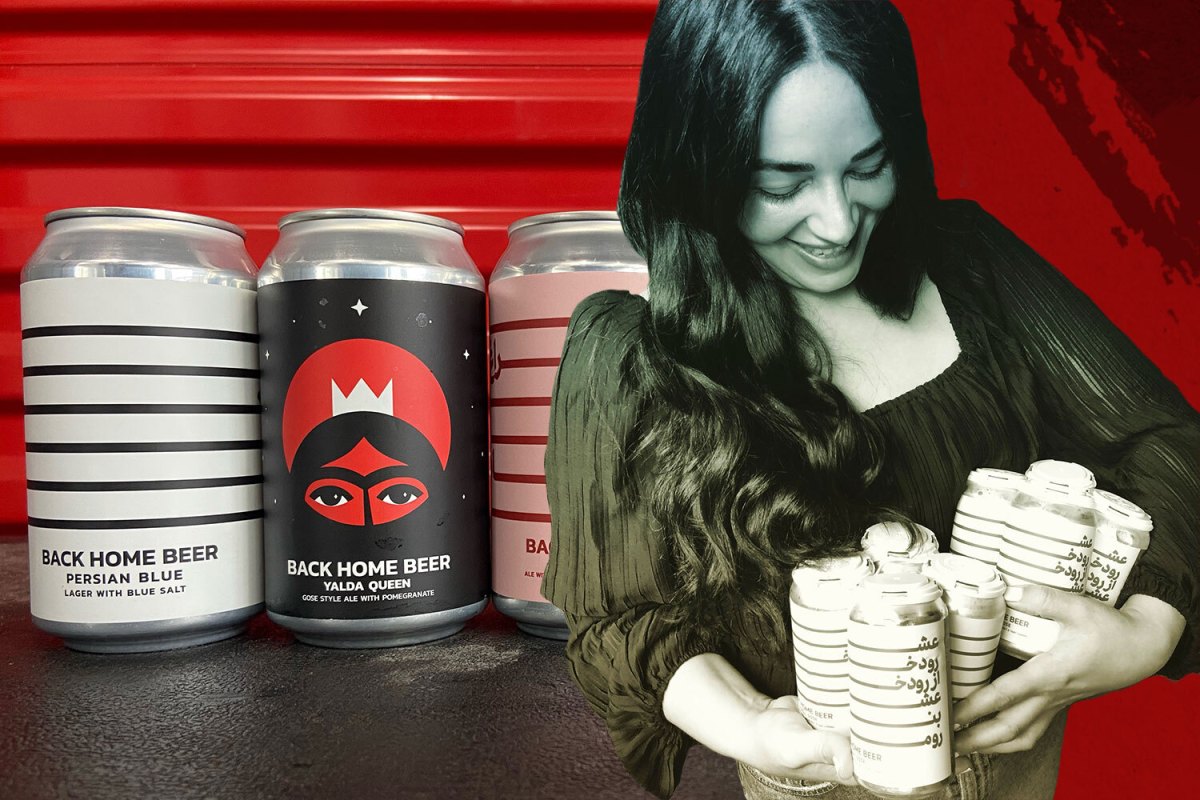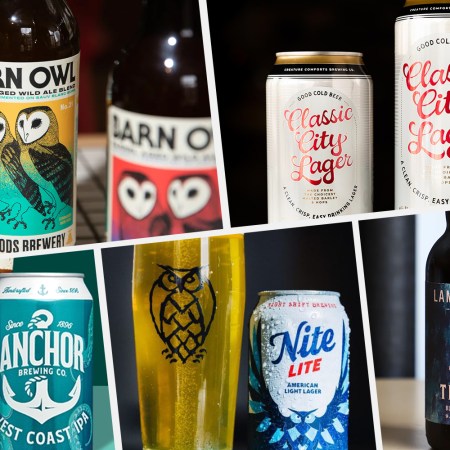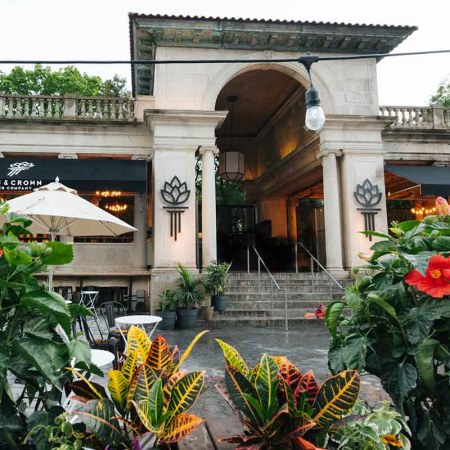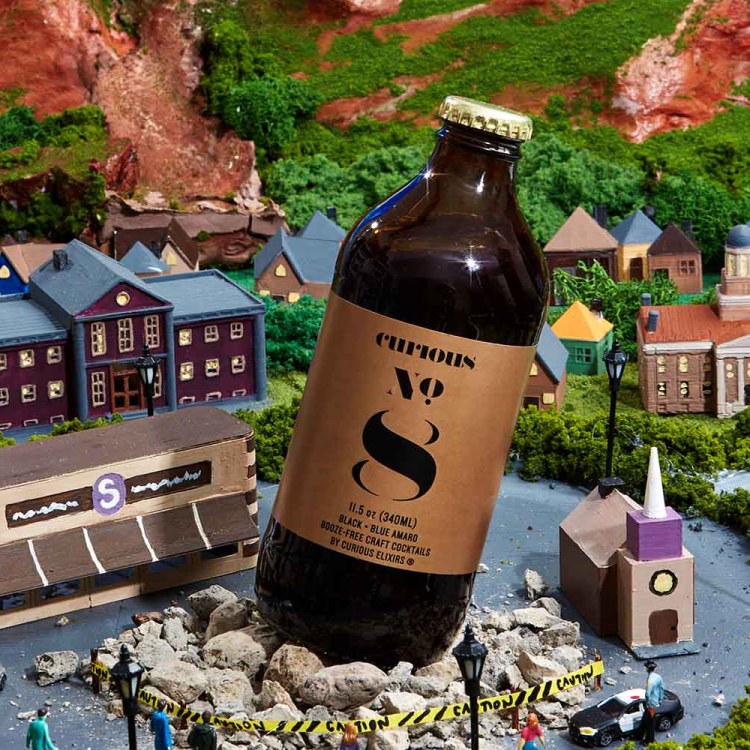When you think of countries famous for their beer, you might think of Germany or Belgium, but Iran probably wouldn’t be the first place that comes to mind. The founder of Back Home Beer, Zahra Tabatabai, is on a mission to increase awareness of Iran’s brewing history by introducing her ab jo — Iranian barley beer — to the American market.
The tradition of brewing barley beer can be traced back to Mesopotamia — modern-day Iraq, parts of Turkey and Syria — and Iran. However, many are unaware of this heritage, and Tabatabai has begun to use Back Home Beer’s social media platforms to educate the public and bust myths surrounding Muslim alcohol consumption. Tired of receiving comments like “Why are you making Muslim beer? Muslims don’t drink,” Tabatabai decided to address the skewed narrative head-on: “Back Home Beer is not a Muslim beer. This is a beer that is influenced and inspired by the flavors of the Middle East. Corona is not a Catholic beer. People associate it with Mexico,” she says.
Keen to continue the legacy of her grandfather Gholam-Reza Fakhrabadi, who worked as a brewer in Shiraz in pre-revolutionary Iran before the family relocated to Atlanta, Georgia, Tabatabai decided to try her hand at brewing beer. “I went into it pretty naively,” she says. “I thought, ‘This can’t be too difficult. Let me just take a class at this home-brew shop and see what I can do.’”
While classes and YouTube videos proved helpful for brewing at home, Tabatabai worked with a consultant to help her to scale the business and prepare for large-scale brewing. “It’s not like cooking, where you just double or triple the recipe,” she says. Tailoring recipes to the facilities available was a key part of the process. She now rents tanks and brews at Flagship Brewing Company in Staten Island, New York City. The beer is packaged on-site, where it’s either canned or kegged.
Before distributing the beer around New York City and Washington D.C, Tabatabai transports the beer back to her Brooklyn storage space using her trusty Prius, which she can only load with a couple of pallets at a time due to the weight. “I’m delivering three days a week at the moment. When I have to go pick my son up from school, I deliver to the two spots near there. That’s how my mind works,” she explains. “I think, ‘Where do I need to be?’ If I have a tasting in Bushwick, then where can I deliver to while I’m at that tasting?”
Tabatabai’s approach has been successful. What started out as cold emailing to secure clients has now turned into word-of-mouth recommendations, as happy clients pass on her contact details to other business owners. The beer is now available in over 200 bars and restaurants in New York and multiple sites in Washington D.C.
Tabatabai’s previous career as a freelance journalist has helped her to use storytelling to forge a connection between her products, her family history and the general public. “I think a lot of Back Home Beer is telling the story behind it, so having the writing background definitely helped me to do that and allow people to fully understand the meaning behind the beer,” she says. Being new to brewing did come with its challenges, though. “I’ve made plenty of mistakes. I mean anything from having a pallet of beer tip over in the back of a truck to running out of beer for accounts. I’m learning on the job, so it’s been a process, but it’s got me to where I am today.”
Sierra Nevada Founder Ken Grossman Is Bringing Back Four Fan Favorites
The craft beer pioneer is bringing some well-loved brews out of retirement for a new variety packTabatabai was confident that her cooking skills would help her when brewing beer, but the process turned out to be more laborious than she had anticipated, particularly as she began brewing within the confines of her small Brooklyn apartment. “At the start, I was brewing in my kitchen, and I had the fermenters in my bedroom,” she recalls. Her family’s feedback was important to her, as she wanted to ensure that the flavor profiles were as similar as possible to her grandfather Baba Joon’s ab jo.
Since her grandfather passed away when she was a young girl, she had to rely on the memories of her grandmother, her mother and her aunts to get the taste right. “It definitely takes a lot of missteps and a lot of bad beer to get to some good beer,” she says. “I made a black lime lager for my family to try, and they were like, ‘This is terrible!’ They definitely had a lot to say! But then there were some that they absolutely loved, like my barberry sour beer.”
In Iran, Tabatabai’s grandfather made a lot of pilsner-style lager. “I don’t think they were doing a lot of hops, bittering, IPA or anything like that,” she says. “The styles he was brewing were different from the craft beer scene in the US, but I’ve tried to incorporate a lot of his similar flavors and ingredients into styles that work here in the US.” With sanctions currently in place between Iran and the US, Tabatabai has had to think outside the box to source the ingredients that her grandfather used to incorporate in his brews. Wherever possible, she tries to source the ingredients from the Middle East, with orange blossom water from Lebanon, sumac from single-origin farms in Turkey and Iranian blue salt from Canada or Switzerland, as she is unable to deal with Iran directly.
Some of Tabatabai’s beer recipes are inspired by Middle Eastern traditions, such as the custom of putting a pinch of salt in your beer before drinking it. “The idea was to put salt directly into the boil to avoid the step of putting salt in the beer,” she explains. “We did that one at least five or six times to make it taste like my grandfather’s beer.” While certain beers are staples that she brews the whole year, Tabatabai also has some seasonal beers, some of which are connected to specific events or celebrations. She has just launched Summer Witte, a seasonal brew including black limes and orange zest in honor of Pride Month. A portion of the proceeds made from the sale of each Summer Witte will go to The Center NYC. She also created Yalda Queen, a pomegranate gose for the Iranian holiday Yalda Night (Dec. 21), where people gather to eat pomegranate, listen to music and read poetry.
According to the Brewers Association, fewer than a quarter of craft beer businesses in the US are owned by a woman — and even fewer by a person of Asian descent. Tabatabai hopes that in years to come she will be able to open her own space, where she would like to hire women and people of color, offering them the chance to brew themselves. “I think it starts with giving them the opportunity, bringing them in on entry-level positions, and having on-site training programs, so they are able to brew, become head and lead brewers and eventually open up their own breweries,” she says.
As the popularity of Back Home Beer grows, requests have started coming in for the beer in California, Atlanta and Texas. Eventually, Tabatabai hopes to expand her inventory and be able to distribute her beer across more locations in the US. Back in Tabatabai’s grandmother’s home in Atlanta, the newspaper coverage about Back Home Beer takes a place of pride on the wall — Baba Joon’s legacy lives on, and glasses will continue to clink in his memory.
Every Thursday, our resident experts see to it that you’re up to date on the latest from the world of drinks. Trend reports, bottle reviews, cocktail recipes and more. Sign up for THE SPILL now.
























